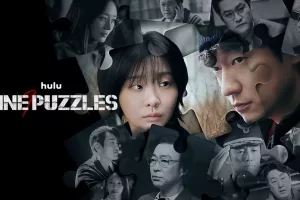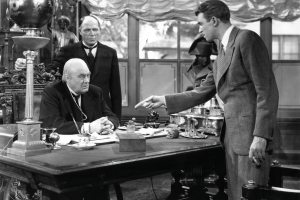 Directed by Michael Apted (ITV Studios, 2012)
Directed by Michael Apted (ITV Studios, 2012)
It all started in 1964 with Seven Up!, a one-hour BBC documentary meant to show Great Britain its future through a series of interviews with a group of seven-year-old children. The 14 chosen seven-year-olds were a cross-section of Britain’s population. Some were rich, some poor, some were from the country, some the city, some were orphans, some had parents in Africa. All of them were terribly charming.
The compelling documentary was so successful that director Michael Apted returned to the same children seven years later for 14 Up, and again seven years later for 21 Up, and again every seven years up to now when the children of the future are now 56 years old in 56 Up.
The Up series, as the collection is called, is based on the Jesuit maxim, “Give me a child until he is seven and I will show you the man.” Who were these children at seven? What did their class and seven-year-old value systems tell us about their futures? And what did that mean for the future of Britain and the world? While the first documentary attempted to answer these questions, what becomes more interesting across the 49-year span of the series is not how class separates us, but rather how the human experience makes us one.
At roughly the same time, the participants’ parents begin to die. Their marriages go through rough patches. They have children. They struggle with illness. They change careers. In other words, John, Andrew, Charles, Suzy, Jackie, Lynn, Tony, Symon, Paul, Sue, Nick, Peter, Bruce, and Neil are all of us.
The series has its stand-out participants. Tony, an impish little boy from the East End who wanted to be a jockey at seven and who became a taxi driver by doing “the Knowledge,” is a clear favorite. Another returning favorite is Bruce, the little boy whose heart’s desire is to see his missionary father in Africa, who eventually becomes a teacher at a private school. Joining these two are 11 more of the original 14 whose life revelations at each seven-year checkpoint serve as windows into all of our futures.
Much like it is for the rest of us, the participants’ privilege and education plays less of a role in determining happiness than do successful personal relationships and the ability to find meaningful work. For all of them, life is hard. For most of them, there is abundant grace and joy.
In viewing 56 Up, one hopes the participants who have become something like long-distance friends will have found stability. One hopes their marriages have been through their worst and that these people who have opened their lives to the world have found the sort of contentment and joy in life we all desire. Sometimes they have. Sometimes, their struggles are still so poignant, they make our hearts break.
There’s a reason Roger Ebert called the Up series “an inspired, almost noble use of the film medium.” To have a document as far-reaching as Michael Apted’s Up series is a gift. It is a reminder that we are all the same in this huge life. Our problems, which always seem so particular, are in fact shared by everyone. What greater gift can we ask for but that we have someone there to remind us that we are never alone?












Add comment